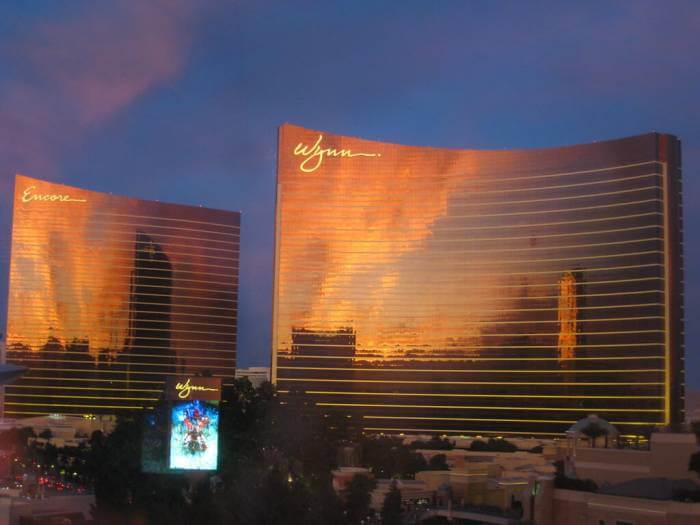Early February 2018, Wynn Resorts Limited Chief Executive Steve Wynn stepped down following a string sexual misconduct allegations leveled against him earlier this year. In his statement, the former CEO cited ‘an avalanche of negative publicity’ as the reason for his stepping down as the chief executive officers of one the biggest casino/resort facilities in the United States. However, the Connecticut-based billionaire businessman denied these allegations — first reported by the Wall Street Journal on 27th January 2018 — terming them as ‘preposterous.’
Steve Wynn founded Wynn Resorts Limited in 16 years ago and has been the company’s Chief Executive Officer since then. He started with casinos in Nevada in the 1960s and has spearheaded the development of some of the most iconic landmarks in the city. Some of his creations include Treasure Island, Bellagio, and the Mirage. He is one of the most successful casino operators in the country. Mr. Wynn also resigned from his role as the chairman of the company’s subsidiary in Asia, the Hong Kong-listed Wynn Macau Limited.
New CEO
According to sources from within the company, his resignation was ‘reluctant.’ Steve Wynn was accused of pressuring female employees to perform acts of sexual nature with him in his office. He claims that the allegations are part of his ex-wife’s, Elaine Wynn, public relations campaign. Matthew Maddox, the company’s president, is set to replace Mr. Wynn as the new CEO. Mr. Maddox has been with the company for many years, and board members felt that he was the best person to replace the embattled billionaire.
Forced to Sell
Mr. Wynn did not resign willingly; the circumstances forced him. Selling his 12.1 million shares at the company wasn’t his choice either. After his resignation, there were reports that Mr. Wynn was forced to sell his shares at the Wynn Resorts Limited after he was deemed to be an ‘unsuitable licensee.’ Before his resignation, Mr. Wynn had been under investigations by regulators from Massachusetts, Nevada, and Macau who maintain that Mr. Wynn’s exit from the stakeholder structure was a good move, but it won’t halt their investigations.
Mr. Wynn’s resignation was good for the company, though. Removing Steve Wynn from the list of shareholders helped the company clear the deck vis-à-vis their efforts to get some industry regulators off their back. But getting Steve Wynn off the shareholder structure wasn’t going to be easy – there were problems. For instance, there was a six-year row with Universal Entertainment Corp. that threatened to make the sale impossible. The dispute with Universal Entertainment Corp. prohibited Mr. Wynn from selling his shares at Wynn Resorts Limited and kept away interested investors from acquiring a stake in the company.
Restrictive Shareholder Agreement
Mr. Wynn’s restrictive shareholder agreement with Universal Entertainment Corp. came to an end late March after Steve Wynn penned a settlement agreement with the company. Mr. Wynn came into an agreement with the former Universal Entertainment Corporation majority shareholder, and the deal sought to cancel the earlier stockholder’s agreement that restricted Mr. Wynn from selling his shares, or those of his ex-wife. Combined, Steve Wynn and his ex-wife, Elaine Wynn, had around 21 percent shares at the Wynn Resorts Limited.
The agreement, signed in 2010, subsequently blocked the former Wynn Resorts CEO from offloading his shares even after he stepped down. After the deal with the previous majority shareholder at Universal Entertainment Corporation. This deal also prevented Elaine Wynn, Mr. Wynn’s ex-wife from selling any of her 9 percent stake in the company. The deal (agreed on 8th March) saw Wynn Resorts Limited give $2.4 billion to the Tokyo-based Universal Entertainment Corporation.
The money was in exchange for Mr. Wynn and his ex-wife allowed to sell their stake without having to consult the game manufacturer in Tokyo. The money was for settlement for claims that Universal Entertainment Corporation redeemed a 20 percent stake of its partner’s value in 2012, a move that if true, would have been deemed illegal. Steve Wynn was now free to sell part or all of his shares at Wynn Resorts Limited to private shareholders in accordance with the company policy on such matters.
New Investors and Potential Joint Project in Asia
The former Wynn Resorts Chief Executive was allowed to sell his 12 percent stake at the company, a deal that saw the billionaire American casino operator pocket a little over $2.1 billion. About 5 percent of the total shares owned by Wynn (12.1 million) was acquired by the Hongkong listed Galaxy Entertainment Group Limited and an unnamed long-term institutional investor. Hongkong Entertainment Group Limited owns and operates the Macau-based Broadway Casino, Star World Macau, and Galaxy Macau, all based in Macau.
According to Hongkong Entertainment Group Limited deputy chairman and billionaire Francis Lui Yiu Tung, the purchase of stake at Wynn Resort Limited presented a chance for the company to invest in a recognized global entertainment corporation with a significant development pipeline and exceptionally high-quality assets. Galaxy Entertainment Group Limited and Wynn Resorts Limited are two of the six entertainment corporations allowed to operate casinos in Macau.
This is alongside Melco Resorts and Entertainment Limited, MGM Resorts International, SJM Holdings Limited, and Las Vegas Sands Corporation. According to Reuters, these two companies may come together to open and operate a casino in Macau jointly in the near future. With opportunities springing up in Asia and Japan, gambling enthusiasts in those parts of the world may not have to wait long before that happens.
What’s Next for Wynn Resorts?
With the appointment of Matthew Maddox as the new Chief Executive immediately after the resignation of Steve Wynn, Wynn Resorts Limited seems to have moved on. From the start of the Steve Wynn scandal, the company has always seemed ready to move on without its former CEO. In his final statement after the sale of his shares at the company, Steve Wynn praised the company’s employees and expressed his delight for the company’s past success. He also said that the company is in the business for the long term, and the team of employees, managers, and executives he was leaving behind would work hard to make sure that happens.







